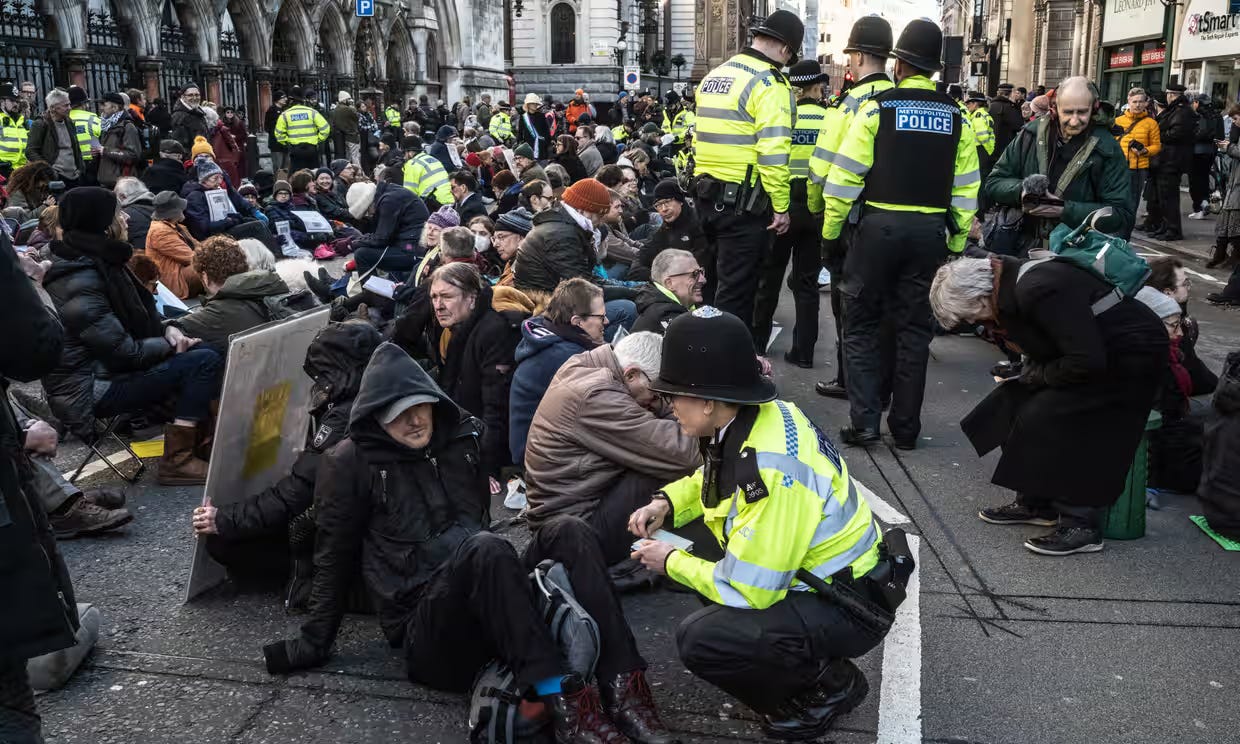How do we muster the courage to be disobedient in the face of power?
What does it mean to be disobedient in the face of power in the climate crisis? What does moral courage look like and how can we find it? We have many examples from our faith traditions to help us.
Last week, I shared the Accra+20 Global Consultation’s final statement on ecological and social justice with you. This statement is an example of faith in action, renewing the World Communion of Reformed Churches' commitment to seeking justice for people and the planet. It is also one example of the fight for faith-based climate justice.
We are in a climate and ecological crisis, and it’s all hands on deck... Subscribe to join a community of people of faith who care about climate action and find hope and encouragement at the same time!

Letter by 160 Faith Leaders to Ontario Premier
This week I want to share with you another example. It is a letter that I and more than 160 other faith leaders sent to Ontario Premier Doug Ford earlier this month concerning a proposal to build a new highway and remove bike lanes.
The letter begins:
“As more than 160 faith leaders representing diverse traditions—including Christian, Jewish, Muslim, Buddhist and Unitarian—we write to express our deep concern about the Reducing Gridlock, Saving You Time Act (Bill 212) and its harmful impacts on Ontario communities and on Creation as a whole.
Our faiths share a moral imperative to provide caring stewardship of the Earth which we hold sacred. We are compelled to speak out when decisions threaten the integrity of our environment and the well-being of present and future generations.
This Act threatens the environment, public safety, food production, and First Nations; it will divert significant financial resources from healthcare, housing and education, where they are desperately needed. As well, it will increase carbon emissions when the Province must urgently reduce them. It is morally and ethically wrong.
The letter is a strong example of using our moral authority as religious leaders and people of faith to identify when our elected officials are doing something wrong. Read the rest of the letter here.
I was gratified to see that the letter received media coverage—the voices of people of faith matter in the public sphere. Make sure your voice is heard!

Essay: How do we muster the courage to be disobedient in the face of power?
On Monday I read the following line in a blog on RadicalDiscipleship.net:
“What we don’t always know, I fear, is how to muster the courage to be disobedient in the face of power.”
While that line is written in the context of the current assault on democracy and immigrant, trans and other vulnerable bodies in the US, I have been thinking about it in the specific context of the climate crisis.
How do we muster the courage to be disobedient in the face of power? We tend to think of the climate crisis as a problem of global heating, and so we think of the solutions in terms of energy: wind, solar, and hydroelectricity. However, the climate crisis is a problem of power; of the elites at the helm of the fossil fuel industry, industrial agriculture, and neoliberal capitalism writ large. The climate crisis is a problem of holding that power to account, and insisting that we stop burning fossil fuels, clearcutting for meat consumption, and call for radically reducing our consumption in so many other areas, too.
Oil executives and government leaders have known for decades about the problem of global heating and what needs to be done to limit greenhouse gas emissions. They chose to ignore, obfuscate, and lie about the climate crisis so that they could keep making money. So if we want to take effective climate action, then we must stand up to the powers that be. We must confront them, and call them to account; we must find the courage to be disobedient to those powers.
What does it mean to be disobedient in the face of power?
This essay is for paid subscribers. Need to find encouragement and hope in this time of climate and ecological crisis? Want to support this eco-ministry that is international and ecumenical? With a paid subscription you’ll get more of the encouragement you need, find hope in this difficult time, and make this ministry possible!
Are you in paid ministry? I offer ideas and inspiration for your preaching, teaching, and pastoral care. You can claim the subscription as a continuing education expense.
Keep reading with a 7-day free trial
Subscribe to Faith. Climate Crisis. Action. to keep reading this post and get 7 days of free access to the full post archives.








